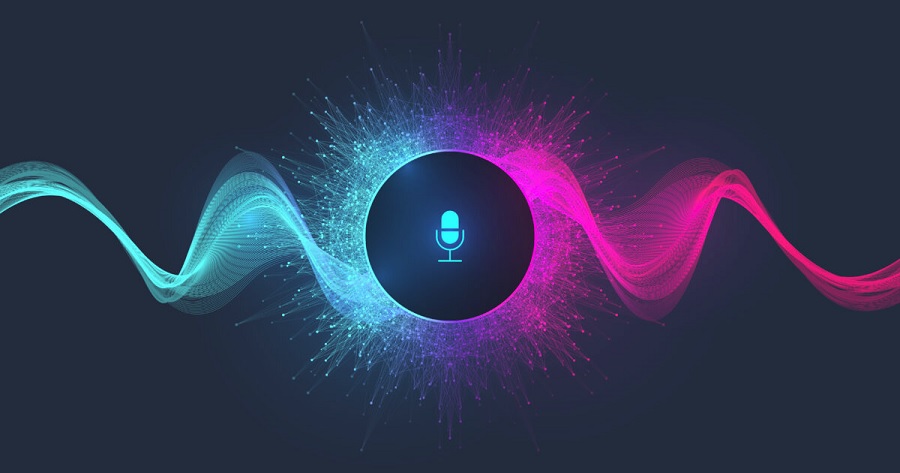Red Hat announced jointly-engineered, integrated and supported images for Red Hat Enterprise Linux across Amazon Web Services (AWS), Google Cloud and Microsoft Azure.
Over the past few decades, artificial intelligence (AI) has gone from a sci-fi concept to an everyday reality.
But just how valuable and useful has AI been when it comes to customer service?
Applause recently conducted a survey on the topic, which looked into the use of AI for voice applications, such as chatbots, interactive voice response (IVR), and other conversational AI-assistants. Here's what we uncovered.

High Expectations
Chatbots are now expected. 93% of respondents expect some sort of chat or voice functionality when they visit a website or place a call. Specifically:
■ 31% always expect automated chatbots, and 46% always expect an automated voice system
■ 61% sometimes expect an automated chatbot, depending on the industry, and 40% expect the same for an automated voice system
■ Only 7% never expect an automated chatbot, and 11% never expect an automated voice system.
When it comes to mobile apps:
■ 44% always expect voice assistants / search features
■ 41% sometimes expect voice assistants / search futures, depending on the app category
■ 13% never expect voice assistants / search features
Low Satisfaction
Despite expecting AI-enabled voice and chat options for connecting with an organization, the majority of respondents prefer to wait for a human agent. Specifically, when calling a company for a service:
■ 51% prefer to wait for a human agent
■ 25% prefer immediate access to an automated touch tone response system
■ 22% prefer an automated virtual representative that responds to voice commands
When it comes to chat functionality, while 93% had expected this on a company's website or app, only 63% said they were somewhat or extremely satisfied with the experience. Of the 19% who found their experiences dissatisfying, the top three reasons were:
■ 29% could not find the answers they were looking for
■ 25% said the chatbot did not understand what they were asking
■ 20% said the chatbot just wasted time before they were eventually connected with a human agent
AI continues to drive innovation and alter the way businesses interact with their customers and stakeholders. The results of this survey highlight this trend, but also show a disconnect between expectations and results.
The global natural language processing (NLP) market is projected to grow from $20.98 billion in 2021 to $127.26 billion in 2028 at a CAGR of 29.4% in that forecast period. Now is the time for organizations to invest in this technology as it advances from optional, to required and a competitive advantage for customer experience. Customers expect automated chatbots and voice systems, so it is important that these technologies work correctly and as customers expect. Plus, the benefits these systems can provide transcend customer experience — they also free up customer service reps for higher-value activities while reducing wait time for customers.
Industry News
Komodor announced the integration of the Komodor platform with Internal Developer Portals (IDPs), starting with built-in support for Backstage and Port.
Operant AI announced Woodpecker, an open-source, automated red teaming engine, that will make advanced security testing accessible to organizations of all sizes.
As part of Summer '25 Edition, Shopify is rolling out new tools and features designed specifically for developers.
Lenses.io announced the release of a suite of AI agents that can radically improve developer productivity.
Google unveiled a significant wave of advancements designed to supercharge how developers build and scale AI applications – from early-stage experimentation right through to large-scale deployment.
Red Hat announced Red Hat Advanced Developer Suite, a new addition to Red Hat OpenShift, the hybrid cloud application platform powered by Kubernetes, designed to improve developer productivity and application security with enhancements to speed the adoption of Red Hat AI technologies.
Perforce Software announced Perforce Intelligence, a blueprint to embed AI across its product lines and connect its AI with platforms and tools across the DevOps lifecycle.
CloudBees announced CloudBees Unify, a strategic leap forward in how enterprises manage software delivery at scale, shifting from offering standalone DevOps tools to delivering a comprehensive, modular solution for today’s most complex, hybrid software environments.
Azul and JetBrains announced a strategic technical collaboration to enhance the runtime performance and scalability of web and server-side Kotlin applications.
Docker, Inc.® announced Docker Hardened Images (DHI), a curated catalog of security-hardened, enterprise-grade container images designed to meet today’s toughest software supply chain challenges.
GitHub announced that GitHub Copilot now includes an asynchronous coding agent, embedded directly in GitHub and accessible from VS Code—creating a powerful Agentic DevOps loop across coding environments.
Red Hat announced its integration with the newly announced NVIDIA Enterprise AI Factory validated design, helping to power a new wave of agentic AI innovation.
JFrog announced the integration of its foundational DevSecOps tools with the NVIDIA Enterprise AI Factory validated design.
GitLab announced the launch of GitLab 18, including AI capabilities natively integrated into the platform and major new innovations across core DevOps, and security and compliance workflows that are available now, with further enhancements planned throughout the year.




